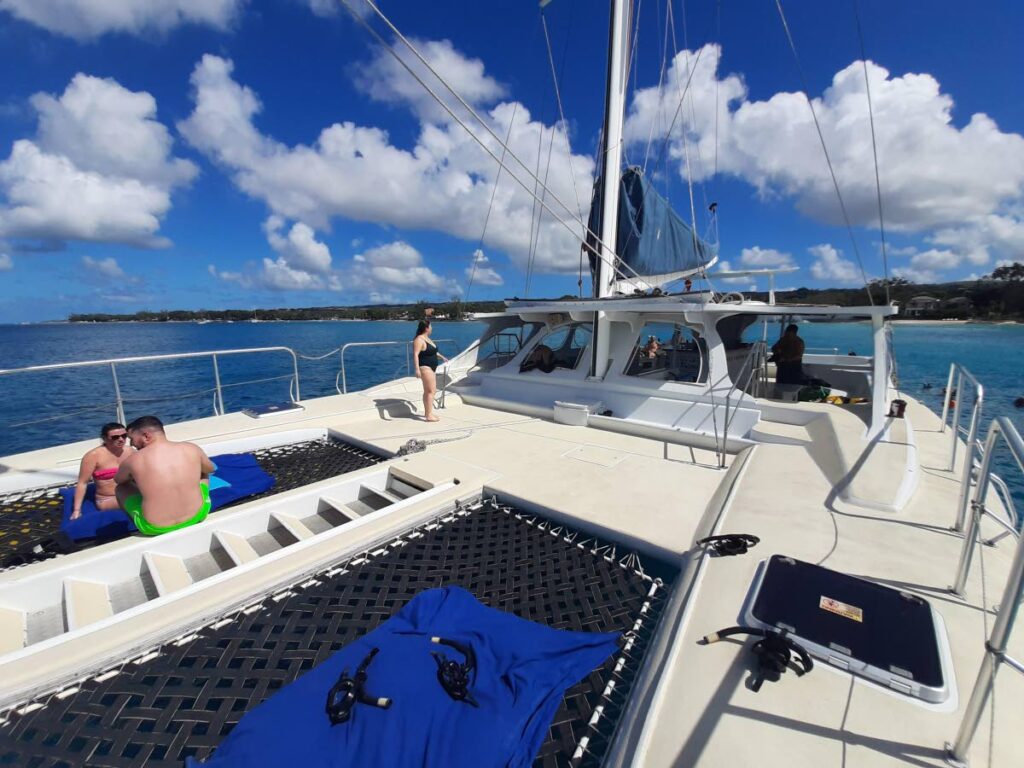Is there something to learn from Barbados?

Shivonne Peters, marine scientist and consultant, writes about her recent visit to Barbados and suggests what Tobago might take from that island’s efficient hospitality industry.
Countries around the world are attempting to restart economic activities as covid19 is becoming more manageable. In the Caribbean, tourism, the region’s main economic driver is on the uptick as many visitors, especially from North America and Europe, are starting to travel. My recent trip to Barbados was more than a vacation as I was curious to see why tourism was thriving in that beautiful island; and what best practices we might adopt in Tobago to make our product more attractive and competitive on a regional and global scale. One may wonder if the tourism products on these two islands are so different. In my view, it seems to come down to three things: the treatment and care of the marine environment; customer service; and the mindset of tourism operators.
Let’s talk about marine-related tourism in Barbados. From my experience, what was most interesting was the fact that a lot of recreational activities occur within and around marine protected areas (MPA). The Folkestone Marine Protected Area is located on the popular and widely-utilised west coast of the island. As this area is used for a variety of water sports, boating and other recreational activities, zones were created to reduce conflicts. There are scientific zones, recreational zones and north and south designated water sports zones, each with their own regulations. Although some may argue that the enforcement of existing regulations needs to be strengthened, the concept of zoning activities is both necessary and commendable when accommodating multiple tourism-related uses within the same location.
The Carlisle Bay Marine Park, also located on the west coast, is another popular tourist attraction for water sports, turtle watching, scuba diving and snorkelling. The tour operators inform you of the “dos” and “don’ts” while in the MPA and emphasise no touching or harassing of sea turtles. Interestingly, the sea turtles stay in the areas as they are usually fed by tour operators. In Carlisle Bay, shipwrecks create artificial reefs that attract a variety of marine life. In Tobago, there are living coral reefs in every bay. Although the shipwrecks can attract both marine life and visitors, naturally occurring coral reef habitats offer more to the visitor interested in eco-tours.
My day tour on the Tiami catamaran was an enlightening and enjoyable experience. Booking the tour was incredibly easy and the service included pick-up from your hotel. The luxury bus drops you to your embarkation point, the dockyard in Bridgetown, where there’s a gift shop with branded merchandise and souvenirs. On that particular day, two of the company’s fleet of catamarans went out for the morning tour, accommodating over 30 passengers each. The staff were courteous, well-trained and adhered to the covid19 protocols throughout the entire sailing. There is certainly the potential for us to expand our tourism offerings in Tobago by upgrading our vessel stock to accommodate larger numbers, but we must remember there are those who come to Tobago because they don’t want to be in a crowd. The challenge therefore is to allow visitors the comfort of being in a place where tourism is not for big groups, while assuring a steady and consistent flow of tourists to the island. Barbados has clearly accomplished the balance between suppliers – the wide array of boat operators – and guests to sustain multiple businesses in the sector.
Barbados successfully attracts first-time tourists and many return visitors through warm and friendly but also efficient customer service. I spent a day at the Boatyard in Bridgetown, which reminded me of Pigeon Point. There are people to anticipate your every need, with smiles and gentle offers. Even along the beach front, which is state property and is open access, there was complete control over all the activities occurring in that space. The Boatyard offers something for everyone and what I found useful was the day pass, inclusive of a snorkelling tour, food and drinks, beach chairs, wifi, rest rooms and water trampoline. If you choose to go on the complementary snorkelling trip you won’t be disappointed. The boat staff emphasises safety and whether you want to or not, you must wear a life jacket at all times, even before boarding the boat.
Barbados certainly has the product and successful marketing of their island, but perhaps their greatest asset is the professional and open attitude of tourism operators. They understand the importance of protecting the environment while guiding guests with impeccable service. There’s a sense of pride among operators who understand the importance of having an approach that fosters collective responsibility in the sector.
Here in Tobago we do not lack the accessibility, beauty or pristine nature of our coastal and marine resources. We have the white sand, aquamarine water and the untouched and unspoilt environment. What we can learn from our Caricom neighbour is how seriously we ought to view tourism on the island. With so many people directly and indirectly employed by tourism and tourism-related activities in Tobago, it is in our best interest to focus on preservation and effective management. The tourism industry can evolve into a self-regulating sector where operators understand the value of the marine habitats and promote protection rather than contributing to its demise by virtue of their actions and activities.
To enhance management, Tobago should seriously consider the establishment of a zoning plan to accommodate various tourism-related activities, particularly in south west Tobago. Above all, we must nurture that love and pride in protecting our own for ourselves first. Then we will certainly find the way to share what we love with those who are attracted to visit. This is the way to ensure the success, longevity and competitiveness of Tobago’s tourism product.

Comments
"Is there something to learn from Barbados?"